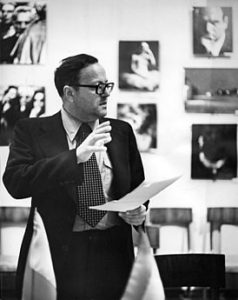
I met Professor Igor Pavlovich Blishchenko (1930 – 2000) towards the end of his life, when in 1996 I organised two seminars at the Henri Dunant Institute in Geneva, as part of the work of the Redress Trust, for the Victims Coalition, led by Fiona McKay, on the provisions for the Rome Statute of the International Criminal Court on the rights of victims. Theo Van Boven and others took part, and Igor was a particularly constructive contributor.
In 2001 the International Review of the Red Cross (no. 843) published an obituary, written by two Legal Advisors to the Office of the Prosecutor at the ICTY, and a Moscow law professor. concluding with the words “(Igor) was a wonderful person, a talented diplomat and a brilliant law professor and scholar, beloved by his colleagues and pupils all over the world.” An even greater tribute was the publication by Brill in 2009 of the edited volume The Legal Regime of the International Criminal Court: Essays in Honour of Professor Igor Blishchenko, edited by Jose Doria (one of the authors of the Obituary), Hans-Peter Gasser, and M. Cherif Bassiouni, with contributions by a galaxy of scholars in the field of International Law of Armed Conflict.
The late Professor Sir Nigel Rodley, the UN Special Rapporteur on Torture from 1993 to 2001 (later a member of UN Human Rights Committee), wrote in 1994, following a visit to Russia, a famously blistering report on conditions of detention in Russia. He had dealings with many Russian officials and academics, but there was one of whom he always spoke highly and with great affection – Igor Blishchenko.
Igor was born on 10 April 1930 in Baku, the capital of Azerbaijan, then a union republic of the USSR. He graduated in 1953 in Law from the Moscow State Institute of International Relations (MGIMO), then earning his PhD (Kandidat Nauk), and from 1956 to 1960 he edited the MGIMO journal International Relations. He was awarded his higher doctorate (Doktor Nauk) in 1964. From 1960 to 1978 Igor taught at MGIMO, and from 1978 to 1981 was the senior researcher at the Institute of World Economy and International Relations (IMEMO).
In 1981 he became Professor and Head of the Kafedra (Chair) of International Law at the Russian University of Peoples Friendship named after Patrice Lumumba (RUDN). He ended his life as an Emeritus Professor at RUDN, and an Honoured Scholar of the Russian Federation.
Igor served as an expert for the Parliament of the Soviet Union, the Parliament of the Russian Federation, and the Ministry of Foreign Affairs of the USSR and of Russia, as well as a member or chairman of various official Soviet and Russian delegations to international conferences and symposiums and to sessions and working groups of many international organizations. He was an expert for the United Nations on problems of international humanitarian law, disarmament, and the prohibition of and restrictions on the use of certain conventional weapons. He was chairman of the Soviet delegation to the International Congress of Paris on the prevention of genocide, representative of the Soviet Union to the UN Sub-Commission on the Prevention of Discrimination and Protection of Minorities, and a member of the Soviet delegation to the ICRC Diplomatic Conference on the Reaffirmation and Development of International Humanitarian Law which, working in four sessions from 1974 to 1977, prepared the two Additional Protocols to the 1949 Geneva Conventions on the protection of war victims.
Igor’s primary contribution to the development of international law was as a tireless and indomitable advocate for international criminal justice, contributing scholarly work as a systematiser and elucidator, as well working as an activist and diplomat at the very highest levels. Although he was a loyal citizen of the USSR, his work was never a stale repetition of some party line, but his own passionate conviction. A sure sign of his independence of thought was his contribution to a collection on Self-Determination, published in 1997, after the Soviet Union’s collapse in 1991, by the leading Russian human rights NGO Memorial. In January 2022, Memorial, having been denounced as a Foreign Agent, was liquidated, Igor argued that the early Soviet government was remarkably consistent in implementing self-determination. He would now be vilified by President Putin for such a position.
Igor’s works, more than 400, include: Armed Conflict and International Law (1971), Non-International Armed Conflict and International Law (1973), The Red Cross and International Humanitarian Law (1977), Conventional Weapons and International Law (1984), International Humanitarian Law (1986 – in an excellent English translation), The Idea of an International Criminal Court (1994), Additional Protocol II on Non-International Armed Conflict and the Problem of Refugees (1998), and Precedents in Public and Private International Law (1999).
Professor Bill Bowring, School of Law, Birkbeck College, University of London

